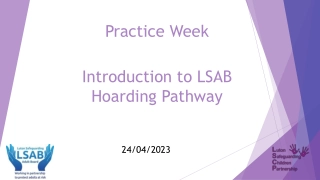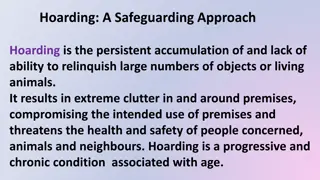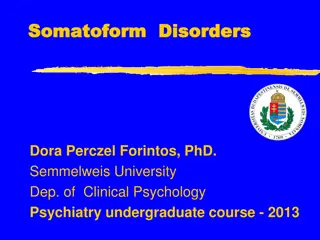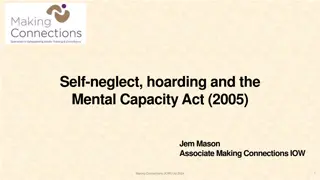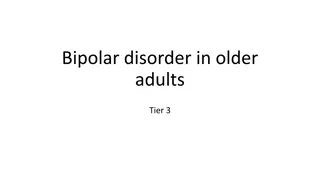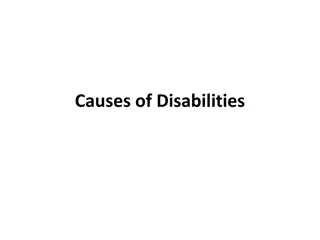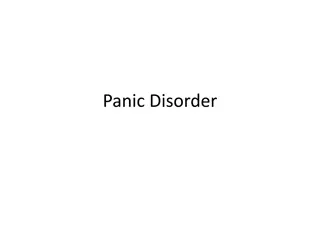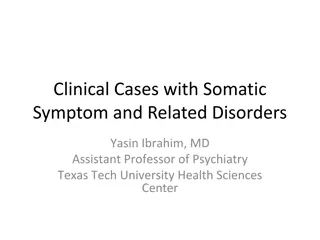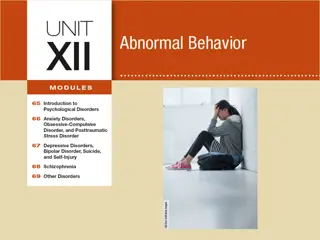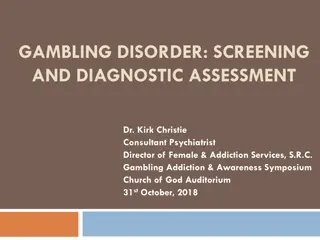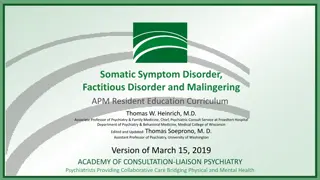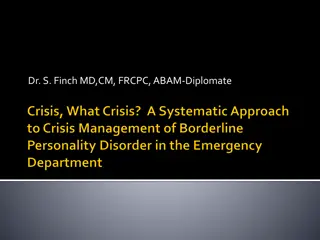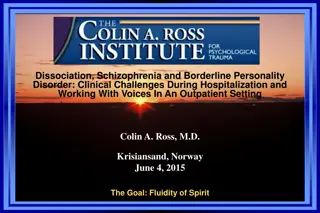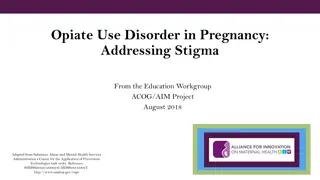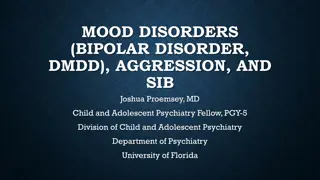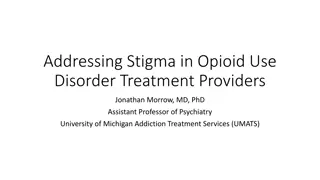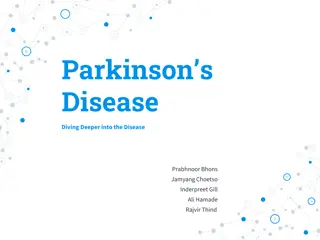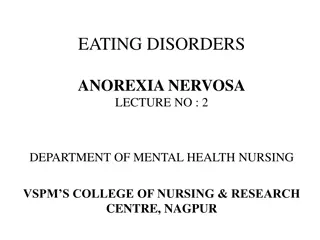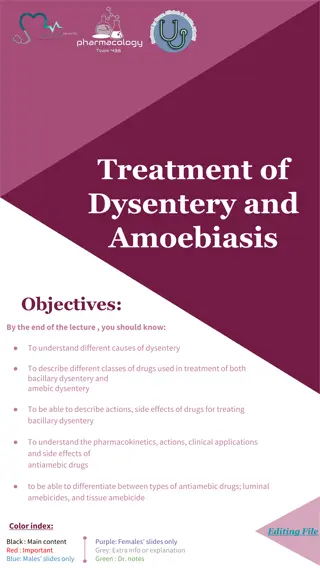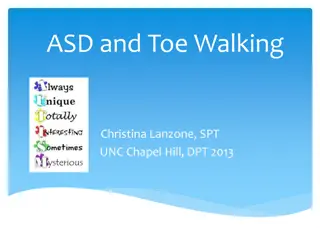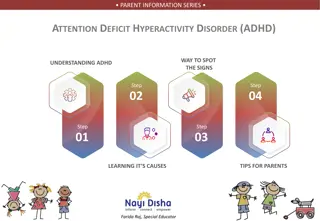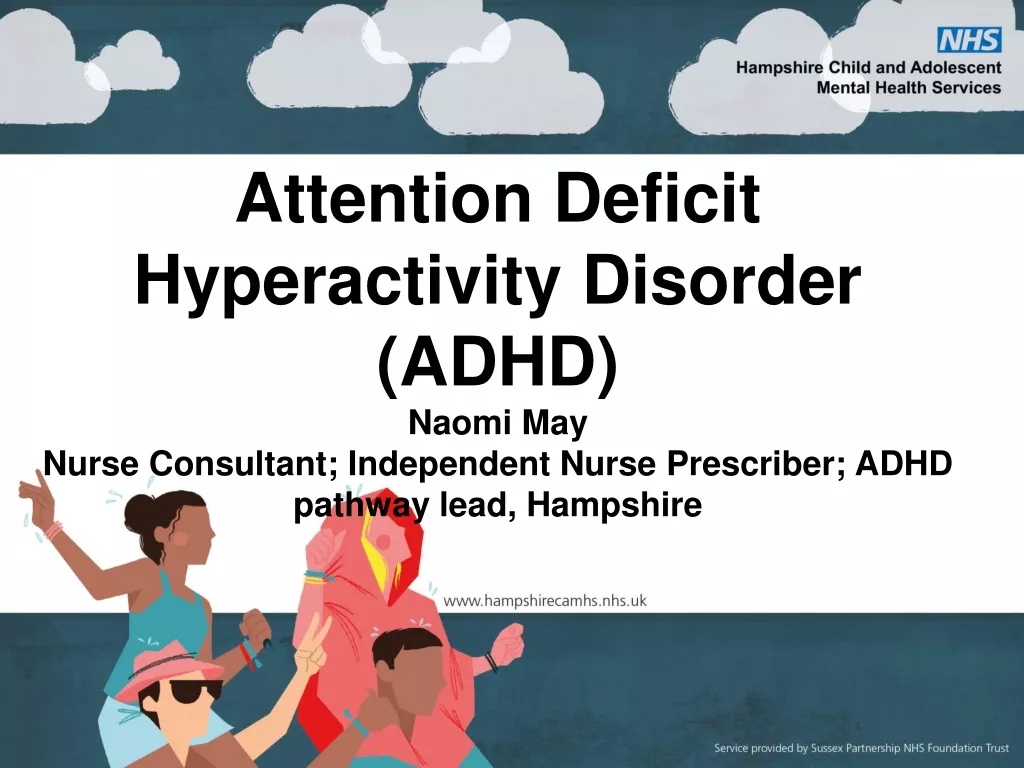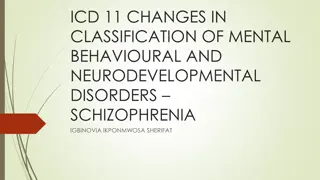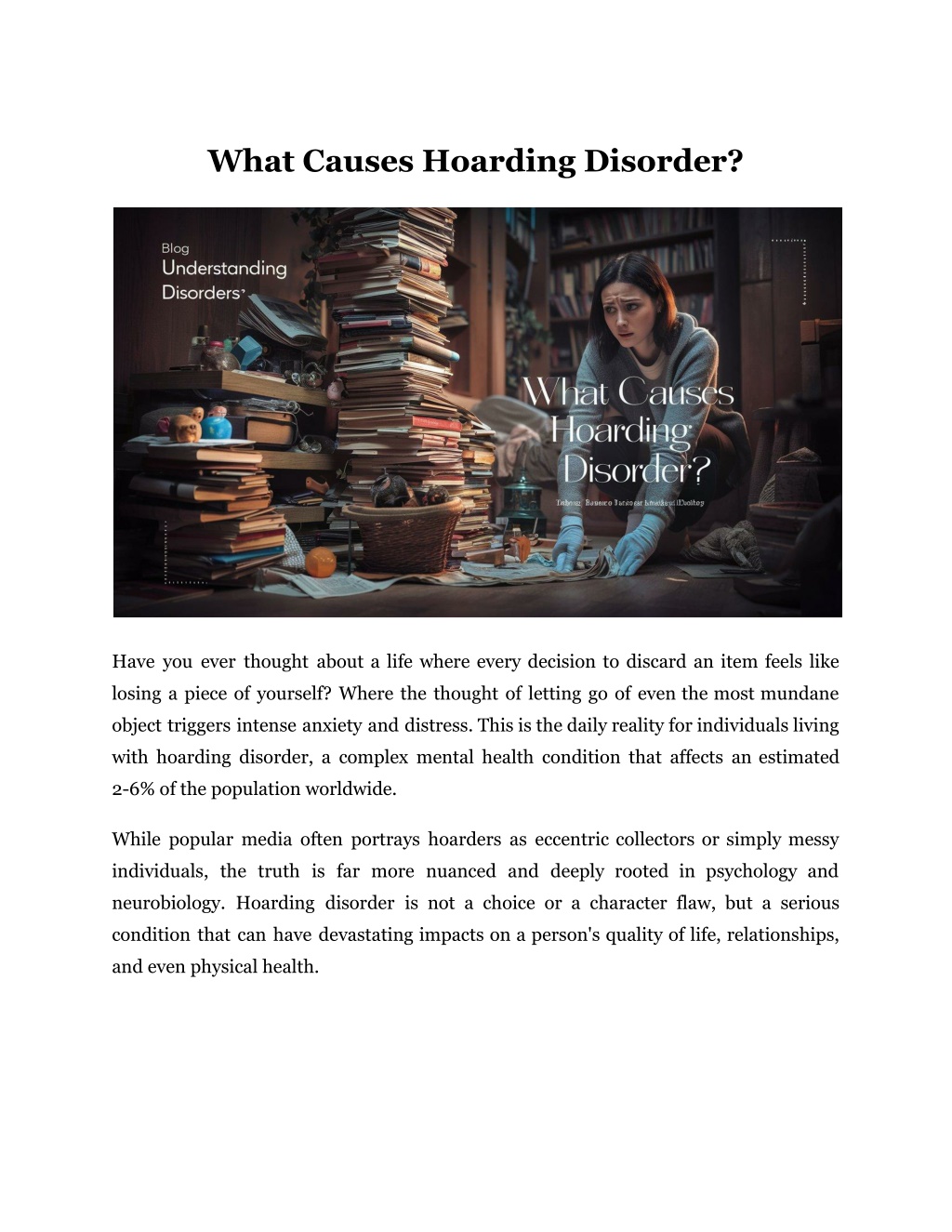
What Causes Hoarding Disorder?
Discover the underlying causes of hoarding disorder. Learn about the psychological and environmental factors contributing to this complex condition.n
Download Presentation

Please find below an Image/Link to download the presentation.
The content on the website is provided AS IS for your information and personal use only. It may not be sold, licensed, or shared on other websites without obtaining consent from the author. Download presentation by click this link. If you encounter any issues during the download, it is possible that the publisher has removed the file from their server.
E N D
Presentation Transcript
What Causes Hoarding Disorder? Have you ever thought about a life where every decision to discard an item feels like losing a piece of yourself? Where the thought of letting go of even the most mundane object triggers intense anxiety and distress. This is the daily reality for individuals living with hoarding disorder, a complex mental health condition that affects an estimated 2-6% of the population worldwide. While popular media often portrays hoarders as eccentric collectors or simply messy individuals, the truth is far more nuanced and deeply rooted in psychology and neurobiology. Hoarding disorder is not a choice or a character flaw, but a serious condition that can have devastating impacts on a person's quality of life, relationships, and even physical health.
The Multifaceted Nature of Hoarding Disorder Hoarding disorder is not a simple condition with a single cause. Instead, it's a complex interplay of genetic, biological, psychological, and environmental factors. Understanding these various components is crucial for developing effective treatment strategies and support systems. Let's explore each of these factors in detail: Genetic and Biological Factors Recent research has shed light on the biological underpinnings of hoarding disorder, revealing that there's more to this condition than meets the eye. Genetic Predisposition: Studies have shown that individuals with a first-degree relative who has a hoarding disorder are more likely to develop the condition themselves. A study published in the American Journal of Psychiatry found that genetic factors account for approximately 50% of the variance in hoarding behavior [1]. Brain Function Abnormalities: Neuroimaging studies have revealed differences in brain activity and structure in individuals with hoarding disorder. Specifically, alterations in the prefrontal cortex and anterior cingulate cortex, areas involved in decision-making and emotional regulation, have been observed. Neurotransmitter Imbalances: Similar to other mental health conditions like OCD, hoarding disorder may be influenced by imbalances in neurotransmitters, particularly serotonin. This chemical messenger plays a crucial role in mood regulation and impulse control [2]. Factor Description Research Finding Genetic Predisposition Hereditary developing disorder risk of 50% variance attributed to genetic factors hoarding Brain Function Alterations cortex cingulate cortex in prefrontal anterior Observed neuroimaging studies differences in and
Neurotransmitters Imbalances, particularly in serotonin Similar patterns to OCD and other related disorders Read More Articles: Why Do People Become Hoarders? Psychological and Cognitive Factors The mind of a person with hoarding disorder works in unique ways, often leading to behaviors that can be difficult for others to understand. Information Processing Deficits: Hoarding experts have identified specific cognitive challenges faced by individuals with this disorder. These include difficulties with: Decision-making Categorization Organization Attention These cognitive deficits can make the process of sorting and discarding items overwhelmingly challenging. Emotional Attachment to Objects: People with hoarding disorder often form intense emotional connections to their possessions. These items may represent comfort, security, or memories, making it extremely difficult to part with them. Perfectionism and Fear of Making Mistakes: The fear of discarding something that might be needed in the future or making the wrong decision about what to keep can lead to paralysis in decision-making, resulting in the accumulation of items. Environmental and Social Factors The environment in which a person lives and their life experiences can play a significant role in the development of hoarding disorder. Traumatic Life Events: Significant loss, such as the death of a loved one, divorce, or financial ruin, can trigger hoarding behaviors as a coping mechanism.
Childhood Experiences: Growing up in a cluttered environment or experiencing material deprivation during childhood may contribute to hoarding tendencies later in life [3]. Social Isolation: Living alone or having limited social interactions can exacerbate hoarding behaviors, as there's less external pressure to maintain a tidy living space. Co-Occurring Mental Health Conditions Hoarding disorder rarely occurs in isolation. It's often accompanied by other mental health conditions, which can complicate diagnosis and treatment. Depression and Anxiety: These mood disorders are commonly found alongside hoarding disorder and may contribute to the difficulty in discarding items. Obsessive-Compulsive Disorder (OCD): While hoarding disorder is now recognized as a distinct condition, it shares some features with OCD and often co-occurs with it. Attention-Deficit/Hyperactivity Disorder (ADHD): The organizational challenges associated with ADHD can contribute to the accumulation of clutter and difficulty in managing possessions. Read More Articles: DIY Freezer Repair Tips for Homeowners The Role of Hoarding Experts in Understanding & Treatment Hoarding experts play a crucial role in advancing our understanding of this complex disorder and developing effective treatment strategies. These professionals, including psychologists, psychiatrists, and specialized therapists, bring a wealth of knowledge and experience to the field. While this disorder can be challenging to treat, several evidence-based approaches have shown promise:
Cognitive-Behavioral Therapy (CBT): Specialized CBT for hoarding focuses on changing thought patterns and behaviors related to acquiring and discarding possessions. Medication: In some cases, particularly when co-occurring conditions are present, medication such as selective serotonin reuptake inhibitors (SSRIs) may be prescribed [4]. Skills Training: Teaching organizational and decision-making skills can help individuals manage their possessions more effectively. Family Interventions: Involving family members in the treatment process can provide crucial support and help maintain progress. Professional Organizing Services: Collaborating with professional organizers who specialize in hoarding can provide practical assistance in decluttering and organizing living spaces. The Bottom Line Hoarding disorder is a complex condition with multiple contributing factors, ranging from genetic predisposition to environmental influences. Understanding these causes is crucial for developing effective treatments and support systems. If you or a loved one is struggling with hoarding behaviors, it's important to seek help from qualified professionals. Don't let hoarding control your life any longer reach out to LifeCycle Transitions for a confidential consultation and take the first step towards a clutter-free future! Site Article: What Causes Hoarding Disorder?

